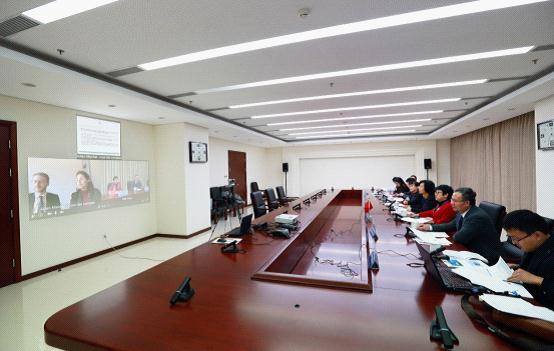
A videoconference on air pollution control audit was held between the National Audit Office of China (CNAO) and Cour des Comptes of France on Dec. 14th, 2016. Based on the bilateral MOU, this videoconference was emphasized highly by both SAIs. Experts on environmental auditing from both SAIs attended the conference.
In their presentation, French experts introduced the context, methodology, audit findings of audit on air quality in France and put forward targeted recommendations. They shared an audit project lasted from February 2015 and to January 2016. Auditors undertook a comprehensive survey on air quality both on national and local level, analyzing all emitting sectors including transport, industry, agriculture, residential and housing with a focus on specific areas such as Paris, Grenoble, Alps valley and Fos-sur-mer. In the audit, many fields of investigations were involved concerning the social and economic costs of air pollution and health impact, contribution of all emitting sectors and global trends, efficiency of regulations and tools in these sectors, coherence between the objective of air quality and others, etc.
Audit experts from CNAO delivered a comprehensive presentation on the audit on air pollution prevention and control in Beijing, including air pollution control measures, audit priorities, audit results etc. In 2015, Beijing Municipal Audit Office audited special funds for air pollution prevention and control. This audit focused on capital investment, management and use of 14 control tasks relating to coal consumption reduction, vehicle control and oil reduction, pollution control and emission reduction, comprehensive support and other measures implemented by Beijing Municipal Government, involving 8 departments such as the Municipal Environmental Protection Bureau, the Municipal Commission of Development and Reform, the Municipal Commission of Rural Affairs etc.
The audit found that Beijing's air quality shows a trend of improvement on a year-on-year basis as financial support was increased to promote air pollution control. In the mean time, the audit also revealed problems on air pollution control in Beijing: coal-fired boiler control measures do not converge, and air pollution prevention and control mechanisms have not formed a joint force; gas infrastructure cannot meet the needs of clean energy transformation; the management of vehicle assets formed due to investment in air pollution prevention and control is not in place.
